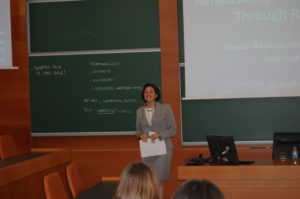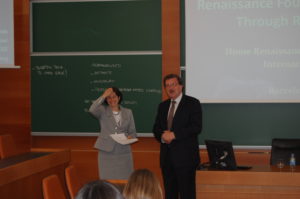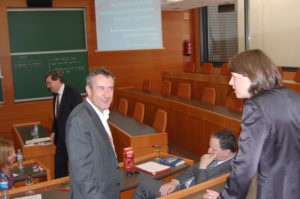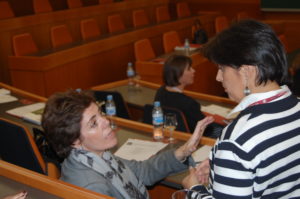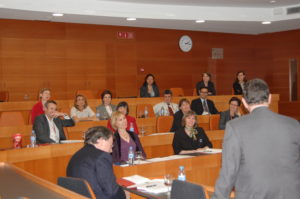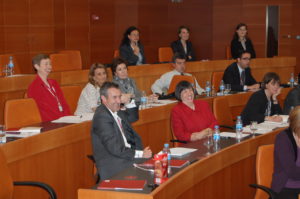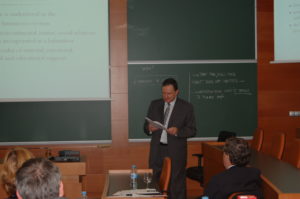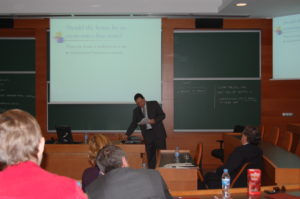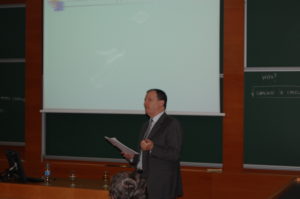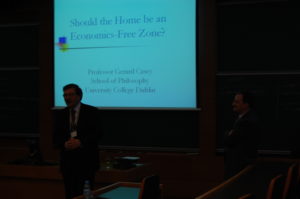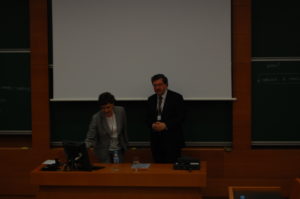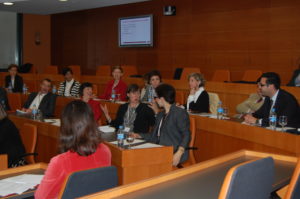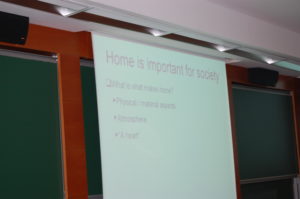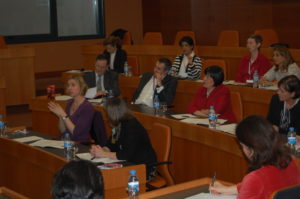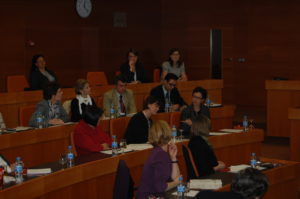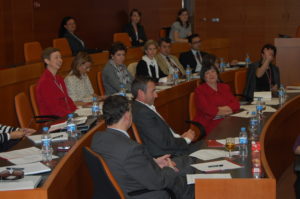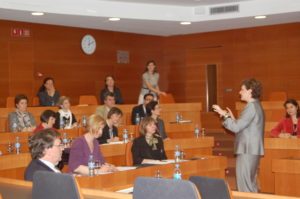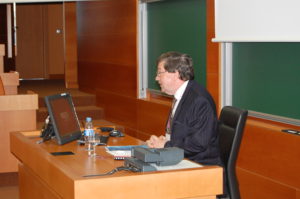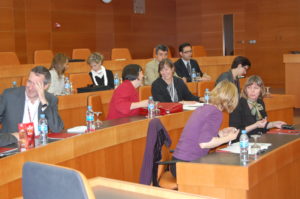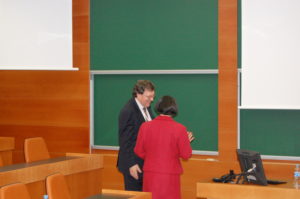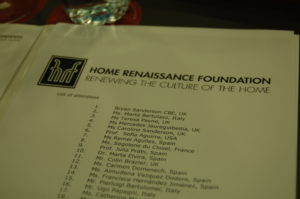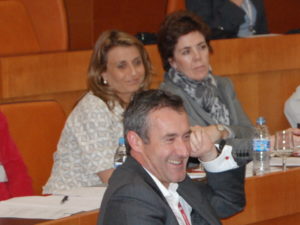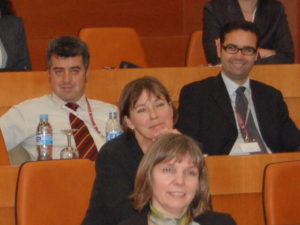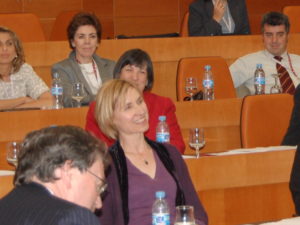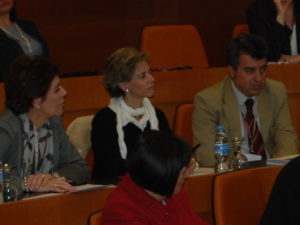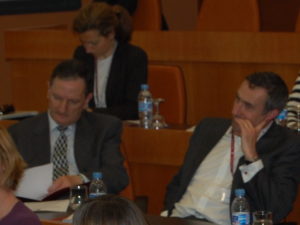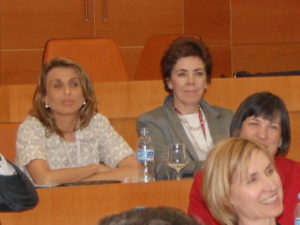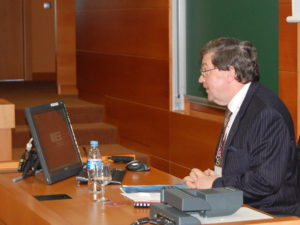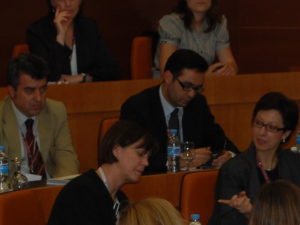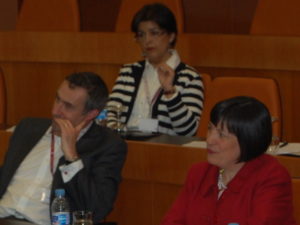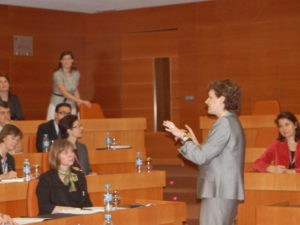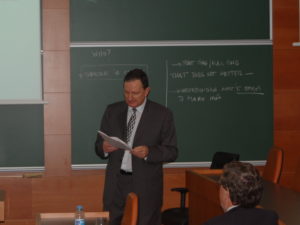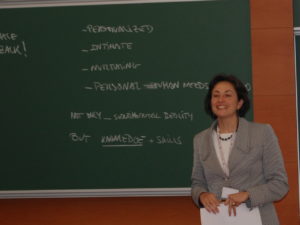HRF Symposium 2009 at IESE Business School | Barcelona
What is the link between home economics and a sustainable society? There are many who would say not much. The three speakers at the Home Renaissance Foundation symposium held in May 2009 in the IESE Business School, Barcelona, had a lot to argue against this general consensus.
The HRF symposium in Barcelona last May entitled ‘Homemaking and Social Sustainability: Building Society Through a new Professionalism in the Home’ boasted of three academic speakers: Professor Gerard Casey from the School of Philosophy, University College of Dublin, Professor Sophia Aguirre, Associate Professor of Economics at the Catholic University of America and Professor Julia Prats, Head of Department of Entrepreneurship, at IESE Business School, Barcelona. The symposium was held as a preliminary step towards the upcoming Excellence in the Home Conference in London due to take place in 2011.
The first question the speakers tackled was why the connection between the home and fields such as economy, business and politics is not usually made. From a philosophical perspective, Professor Casey reminded the participants in the symposium that a view of economics that divorces economics from the home is not only modern, but contrary to the word’s etymology (the word comes from the Greek words ‘house’ and ‘to manage’). Rather than using this standard model of economics, as the science of wealth, Prof Casey suggested an Austrian model whereby economics is seen as one of the sciences of human action. If economics ‘is to be understood in terms of the logic of human action, of the dynamics of human choice, and of exchange across a range of incommensurable goods, both material and psychic’ then how much of an argument is left for those who argue that the home is an economics-free zone?
From her background in business, Professor Prats contributed to the theme: ‘a sustainable society needs competitive persons: people who are fully developed in every aspect.’ According to Professor Prats the best environment for this development to take place in is the home. This idea was expanded on by Prof Casey, who described the home as ‘the locus for the physical, emotional, and intellectual development of its inhabitants, particularly (but not exclusively) its young.’ He went further, ‘There is no mechanical way of resolving this tension but the home is where this lived tension is initially managed and where the most important things that the new generation needs—the moral virtues—are inculcated.’ Professor Aguirre also contributed to this view by suggesting that the home not only creates the necessary environment for a person to develop and satisfies the need to provide for their basic needs, it is also a manifestation of the interdependence of individuals.
The problem lies in the fact that homemaking is not recognized as a profession and not valued enough within the standard economic model. Prof Prats argued that most of the characteristics that define a profession could be applied to homemaking once the necessary research on the subject has been carried out. We can begin by pointing out that homemaking requires technical competences, such as theoretical and practical knowledge, and skills such as organizational vision, resource management, negotiation skills, and client orientation to name a few. She also went on to highlight the interpersonal competences and personal competences required. Furthermore, as Prof Aguirre pointed out, service is at the core of the work done in the home. What needs to be resolved, then, is whether a homemaker can develop all the possible competences in the professional practice.
This symposium, however, did not merely serve the purpose of expounding academic theory on the topic of homemaking to the group of over twenty individually invited guests. Many questions were posed that remain unanswered at this stage. The result of the symposium was an agenda for the role of academia and the work that must be put into further research on the topic. Professor Aguirre reminded those present that the current research on the topic of homemaking is fragmented and she suggested two goals to work towards: firstly, to understand and define service as captured by the work of the home and, secondly, to achieve a social recognition of this work.
- Prof Sophia Aguirre, Bryan Sanderson CBE
- Prof Gerard Casey, School of Philosophy, University College Dublin
- Prof. Maria Julia Prats, Head of Department of Entrepreneurship, IESE Business School. Barcelona
- Bryan Sanderson CBE, Chairman of The Home Renaissance Foundation
- Prof Gerard Casey, School of Philosophy, University College Dublin
- Prof Sophia Aguirre, Associate Professor of Economics, The Catholic University of America, Washington
